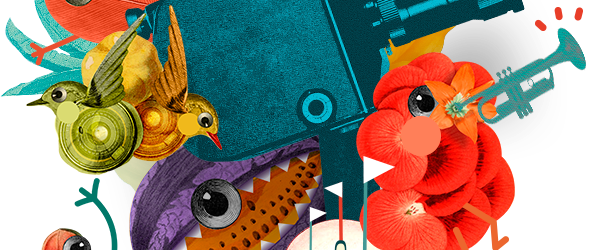
San Diego Latino Film Festival (SDLFF)
The San Diego Latino Film Festival (SDLFF) is presented and produced by Media Arts Center San Diego, is a non-profit organization. The 31th edition of the festival will take place from March 14-24, 2024.
The San Diego Latino Film Festival is a 10 day celebration of Latino Cinema, Arts & Culture. The festival will present over 60 programs from Latin America and the United States as well as Opening Night and Closing Night Parties, the Annual Sabor Latino – Food, Beer & Wine Festival, Q&A sessions with visiting filmmakers, free student screenings, and more. Audiences will have the rare opportunity to meet filmmakers and actors from all over the world. Full lineup to be announced in February 2024. Stay tuned!
Media Arts Center San Diego’s San Diego Latino Film Festival was established 31 years ago initially as a student film festival (Cine Estudantil) focusing on works by Latinos and/or about the Latino Experience. Since that time, the San Diego Latino Film Festival has developed into one of the larger and well-respected Latino film festivals in the world. Over 350,000 people have attended during the past 30 years and over 4,020 films/videos from across Latin America and the United States have been screened.
Past festival guests have included such renowned individuals as Dolores Huerta, Barbara Mori, Ximena Ayala, Hector Babenco, Guy Ecker, Iliana Fox, Adamari Lopez, Ludwika Paleta, Ana Serradilla, Rick Najera, Cecilia Saurez, Maya Zapata, Jaime Camil, Susana Zabaleta, Demian Bichir, Kate del Castillo, America Ferrera, John Leguizamo, Alfonso Cuaron, Diego Luna, Gael Garcia Bernal, Carlos Carrera, Rodrigo Prieto, Alex Lora, Lupe Ontiveros, Bruno Bichir, Carmen Salinas, Luis Mandoki, Danny Trejo, Adal Ramones, Tony Plana, Elpidia Carrillo, Humberto Solas, Dennis Leoni, Arturo Ripstein, Paul Rodriguez, Patssi Valdez, Luis Valdez, Gregory Nava, Edward James Olmos, Lourdes Portillo, Moctesuma Esparza, Ray Bradbury, Jacob Vargas, Patricia Velasquez, Fernando Sarinana, Lucia Murat, Nancy de los Santos, Vanessa Bauche, Carlos Bolado, Carlos Avila, Edgar Bravo, Maria Canals, Enrique Castillo, Lumi Cavazos, Jorge Cervera Jr., Danny de la Paz, Ciro Duran, Evelina Fernandez, Gabriel Figueroa Jr., Vicky Funari, Zaide Silvia Guttierez, Clifton Gonzalez-Gonzalez, Stuart Gordon, Sal Lopez, Nestor Miranda, Allen Moore, Lucia Murat, Jeffrey Reyna, Richard Salazar, Mary Siceloff, Marisa Sistach, Jose Luis Valenzuela, Jacob Vargas, David Villalpando, Michael Peña, Wilmer Valderrama, Ofelia Medina, Tommy Lister, Aimee Garcia, Pepe Serna, and many more.
